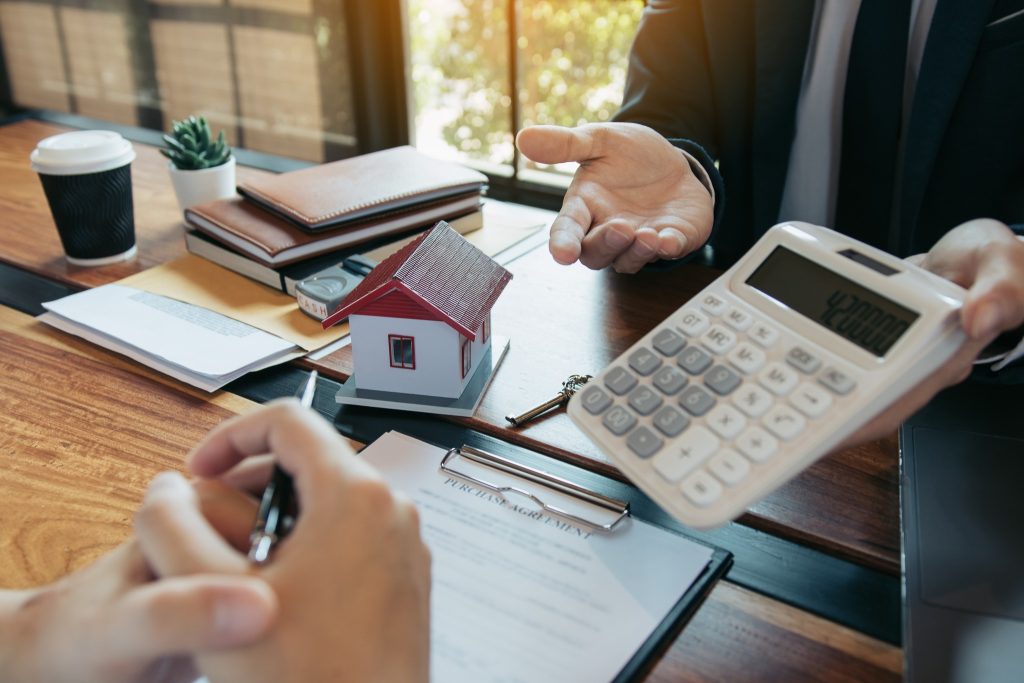When deciding to buy a house, we must first check a number of issues.
Often, before going to the notary, private documents are signed, such as the reservation, the purchase contract, which bind us to very important obligations and, given that the purchase of a property involves a lot of money, it is essential to be well advised from the outset.
When buying and selling a property, we must differentiate whether it is a new or second-hand property.
From a general point of view, and in order to avoid possible complications, we have to differentiate the condition of who we are dealing with, whether it is the owner, a mediator authorised by the owner or an agency. And, in any case, we must check that this person or company has the right to the property or has due authorisation from the owner.
New Homes
When we are going to buy a new home, we must check whether a building permit has been granted, whether construction has begun or, on the contrary, whether it is an off-plan housing development for which a permit has yet to be applied for. The most common thing to do in these cases is to sign a deposit contract or down payment contract, and subsequently a private purchase contract.
Let us not forget that, from the very first document we sign, we are accepting certain conditions for the acquisition of the property, so it is essential that all the legally required requirements are met and that all the necessary documents (floor plans, specifications, guarantee of the amounts paid on account, etc.) are provided at each stage.
Second hand homes
In this case it is very common that there is a real estate agency in charge of marketing the property, although it is possible that it is the property owner who does this work.
When the buyer makes the decision to purchase a property, a deposit contract is normally signed in which the conditions of the operation are established. Therefore, the buyer must first check a series of essential circumstances such as whether the property is free of encumbrances, whether there are tenants or occupants, whether there are any debts with the community of owners, whether there are any outstanding payments, the age of the building, its state of conservation, etc.
Sometimes a preliminary document or deposit may be signed, especially if a real estate agency is involved in the transaction, so we should confirm whether, in addition to the price, the intermediary’s commission is to be assumed.
The earnest money document
The earnest money document There are several types of earnest money, although the most common are the so-called penitential earnest money regulated in article 1454 of the Spanish Civil Code. The penitential earnest money means that if the buyer defaults, he will lose the amount given to the seller as earnest money, and if it is the seller who defaults, he will be obliged to return it doubled in favour of the buyer.
Signing the deed of sale at the notary’s office
Before going to the notary’s office to sign the public deed of sale, it is very important that we check it carefully to ensure that its content is correct. With this prior work we ensure that in the so-called act of execution of the deed at the notary’s office we only have to verify that everything is in accordance with the agreements previously signed between the buyer and the seller throughout the whole process of purchase and sale.
Appearance of defects in the property
Once we have acquired a property and we are its legitimate owners, we have a period of time to claim for possible defects in the property. If the property is second-hand, the legislation grants us a period of 6 months from the time we have possession of the property to claim for defects, as long as they are serious and cannot be detected with the naked eye by the buyer.
Given the short timeframe in which the buyer has to complain about possible defects in their property, it is essential that the complaint process is swift in order to have the best chance of success.
If the property purchased is new, the Ley de Ordenación de la Edificación establishes a period from the delivery of the property of one year for finishing defects, three years for defects or defects that affect habitability and ten years for defects that affect the structural safety of the building.
Finally, it should be added that in order to properly claim for the repair of the aforementioned defects, it is very necessary to communicate them in such a way that they are recorded and as soon as possible, and if they are not attended to and repaired, to proceed with a legal claim within the period established by law.



